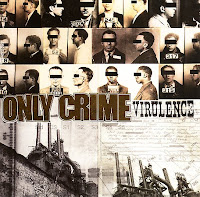This Christmas, To Whom Will You Be Giving Gifts?
Our concept of Christmas is completely backwards and, honestly, it kind of sickens me. Please read on before you write me off as another "Scrooge"...
Every year, around Christmas, I see mall traffic increase exponentially. I wade through an influx of "holiday" catalogs and circulars. I look on as people run around determined that they need to buy expensive gifts for everyone they know. I hear infinitely more advertisements on the radio explaining to me that it's not enough to just tell your wife you love her: you need to buy her diamonds to prove it. I see people spending large amounts of time, energy and money decorating their homes, stores and offices. This year, for the first time, I even read about thousands of trees being cut down in the Pacific northwest and being shipped to Hawaii by boat. I see waste everywhere, money being spent hand-over-fist in the pursuit of a "better Christmas." At the same time, I see countless charitable organizations struggling to secure a small part of all of that spending in the form of "year-end gifts," and I'm inevitably left wondering why—especially at this time of year—charity is nothing more than an afterthought.
You see, Christmas—even if you don't celebrate the birth of Christ—is a holiday that is all about giving. But almost every single one of us in this country has much more than we need. If you eat three meals a day and sleep indoors every night, if you're reading this on your computer, you are among the wealthiest people in the world. Let me repeat that: you are among the wealthiest people in the world. Yet, somehow we've become convinced that we need larger televesions, louder stereos, expensive jewelry and clothes, GPS units and nice cars (I'm certainly guilty of this one). We need more. More, more, more... and it never ends because we never have enough. And Christmas, unfortunately, becomes nothing more than a slightly better excuse than most to get more stuff. I want to make it clear that I don't have any problem, per se, with people who get into the so-called "holiday spirit" by decorating and all of that. I am greatly dismayed, though, that the holiday seems to have been entirely stripped of its spirit. We have allowed ourselves to be horribly distracted. We already have so much—far more than we need—so I ask you, how can we possibly justify asking for more when there are so many out there with close to nothing?
Now, you may be thinking this seems like a socialist idea, but let me assure you that I fully believe that an economic system based on the capitalist model provides the greatest opportunities for human growth and well-being. But the reason that capitalism hasn't been at all effective in terms of providing for all people is solely because of human greed. Regardless of what many would have you believe, greed is not an intrinsic property of capitalism: that part is up to us. I believe in a form of responsible, charitable capitalism, in which those with much provide for the needs of those with little, not because they are legally compelled to do so, but simply because it is the right thing to do.
And the case is lucidly clear for those of us who call ourselves Christians. Scripture, I believe, is very clear in telling us that God blesses us in abundance so that we may bless others (2 Cor 9:7-8). Jesus Christ gave us two commandments in the Gospels, telling us that these two dictates showed the intention that was at the heart of the Law. First, we should love God with all our hearts, bodies, and minds. Second, we should love our neighbor as ourselves. Jesus told us that the second was "like the first," and I read this to mean that one of the greatest ways we can show love to God is to show love to His children: we complete the former precept by upholding the latter. God spoke to the prophet Isaiah and posed a question: does God care about us "going through the motions" of religious worship of Him, or does He care about how we take care of and provide for all of His dear children who are in need (Isa 58)? Jesus tells us that "a man's life does not consist in the abundance of his possessions" (Luke 12:15). All of that will fade away and rot; none of it is eternal. Further, we should be freely willing to give: "God loves a cheerful giver." Why do we give, and why should we do it cheerfully? Because it is, in fact, the very manner in which we love: by giving not only of our possessions but of our time and our care and concern. Jesus was our example; he always looked out for the interests of others (Php 2:4-6). And surely Luke was not just using flowery language when he wrote, "It is more blessed to give than to receive" (Acts 20:35). We were all born with nothing, and we'll all die with nothing. God reminded the Jewish people time and time again that they were slaves in Egypt and He brought them out, and for that reason they should look after the fatherless, the alien and the widow and ensure that they receive justice (Deut 24). We are no different: we were slaves to this world until He shattered that yoke. Each and every human being is a precious jewel in God's sight. My wish is that all of us could see people as He sees them, and recognize the need to care for our brothers and sisters like the cherished treasures they truly are.
All of these things have been weighing heavily on my mind lately, especially when I think about the true meaning of Christmas. They are the reason I have made a choice to not only donate money that I would have spent on gifts to charity rather than purchasing gifts for my friends, but have also asked my friends and family to do the same in lieu of giving any gifts to me. I have so much more than I need; I don't need any more. I should be not only content but overjoyed with what I have. Why is that so hard a concept to grasp? Perhaps because we have so much more than we need that we never quite had the opportunity to understand how great it was to just have "enough." Do you really need anything more? I would ask you to ponder that question, and—if it's where your conclusions lead you—consider making a similar choice to mine. Indeed, giving gifts and giving of yourself is a wholly appropriate way of celebrating Christmas. But are we giving those gifts to the right people, the people who need them most?
Please understand that I'm not in any way trying to set myself up on a pedestal by telling you this. I do so not to boast, but rather to share my heart with you and speak a message that I feel needs to be heard. I'm not implying that I've even come close to actually living out this philosophy of selflessness, and—in fact—I'm positive that I'll never be able to claim that I have. I'm reminding myself more than I'm reminding you; I'm asking you to hold me accountable, and hoping that you might ask me to do the same for you. I am humbly saying that I've screwed up big-time, and want to take a tiny step towards getting it right.





 4.5/5
4.5/5


 4/5
4/5
